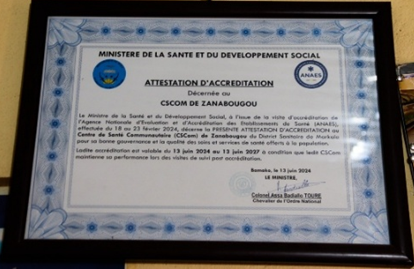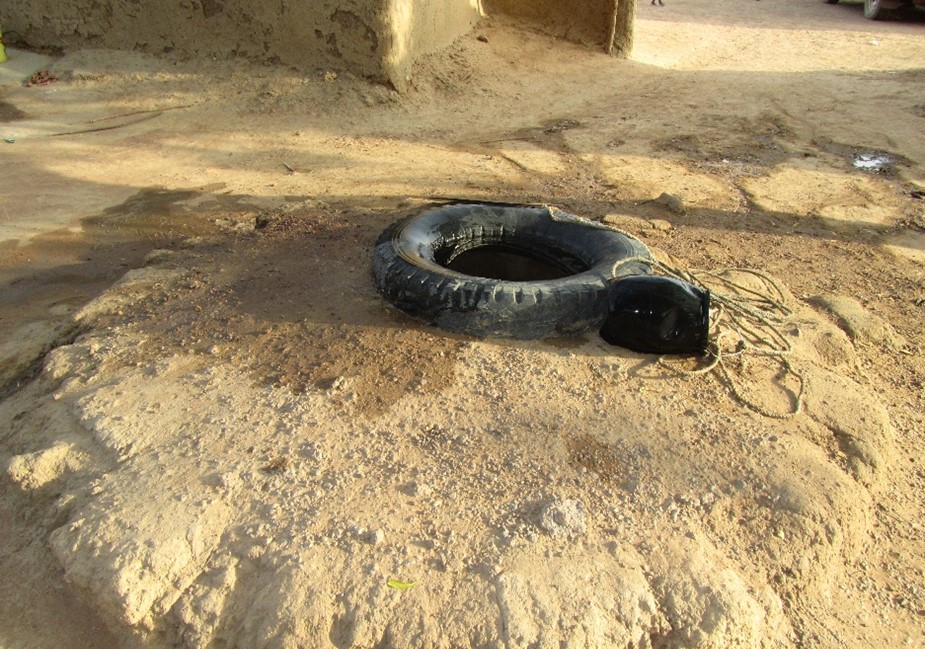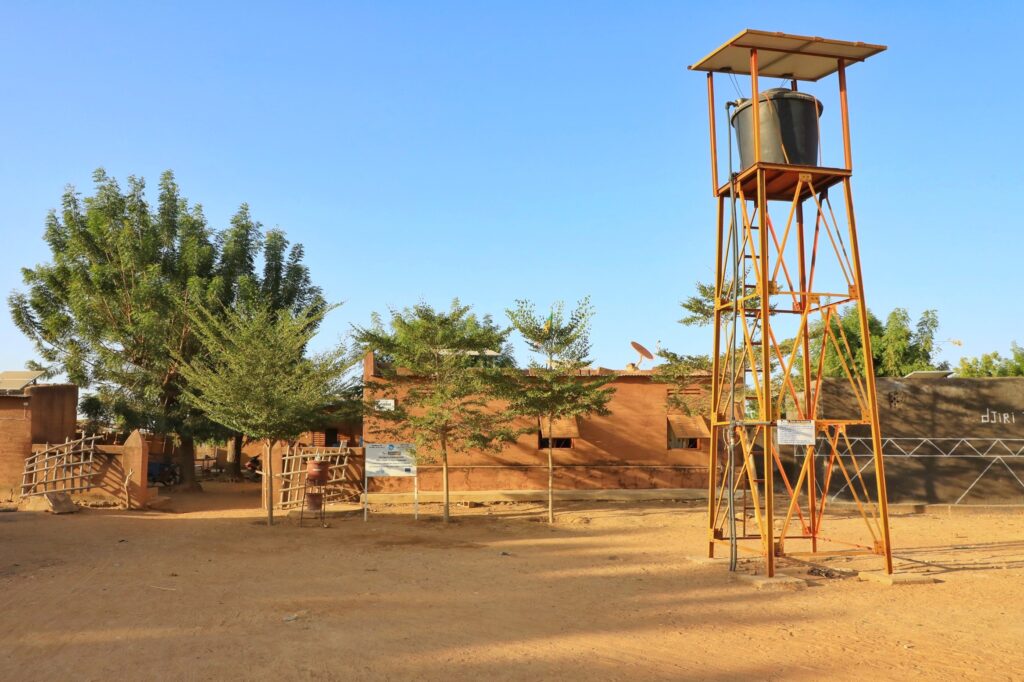27. May 2025
Author and photo credits: Hassane Dembélé, Tdh Mali
In 2018, the Zanabougou healthcare facility (HCF) in the Segou region of Mali was among the most deficient in terms of the provision of water, hygiene and sanitation (WASH) services. According to the assessment carried out by Terre des hommes and the health authorities using the FACET tool from the Swiss Water and Sanitation Consortium (SWSC), based on the JMP indicators (WHO/UNICEF), the HCF did not offer a basic service in any of the WASH areas. The service was non-existent in the areas of water, sanitation, hand hygiene and environmental cleaning and limited in the area of biomedical waste management.
Before, working conditions in our establishment were very precarious. There was no drinking water, only a traditional unprotected well that was often inaccessible. The water was polluted, according to the results of various bacteriological analyses. This compromised the practice of hand hygiene and therefore the quality of care.
Mahamed THERA, Technical Director of the Zanabougou health centre.
Thanks to the support of Terre des hommes, a team from the health centre made up of the Director, the President of the Community Health Association (ASACO) and the cleaner carried out a learning visit in 2018 to the Health District of Bla on the WASH FIT pilot experience supported by WaterAid and WHO.
The health facility then piloted the implementation of WASH FIT from 2020 with the support of the Ségou Regional Health Department and Terre des hommes during phase III of SWSC.
Based on the priorities defined in the HCF’s WASH improvement plan by the WASH FIT committee, Tdh financed the construction of the drinking water supply system and installed sinks in the care units and a standpipe in the establishment’s courtyard. The health centre’s management committee created a budget line to ensure the maintenance of the system.
Before, we didn’t have access to drinking water at the hospital. There was only an unprotected, polluted well. We had to travel long distances to find clean water for deliveries. There were no usable latrines either. This made it difficult to treat patients, especially the elderly like me. Today, we are seeing a big improvement in the health service thanks to access to better WASH conditions.
Nana Ballo, patient in the health centre of Zanabougou
These results in terms of access to water have motivated the WASH FIT committee and the community to invest in improving the other WASH components towards a basic level of service. The FACET assessment carried out by Tdh and the health authorities in January 2025 shows significant progress in the level of WASH services. The health facility continues to offer the basic level of water service with a functional maintenance system; the level of service has gone from ‘no service’ to “basic service” for sanitation and hand hygiene; from ‘no service’ to ‘limited service’ for environmental cleaning but remains ‘limited’ for medical waste management.
Thanks to these efforts, the Zanabougou HCF has become a benchmark for WASH/infection prevention and control in Mali.
In June 2024, following a national evaluation, the health care facility of Zanabougou was accredited by the Agence Nationale d’Evaluation et d’Accréditation des Etablissements de Santé (ANAES) for its good governance and the quality of the health services offered to the population, including WASH. A certificate signed by the Minister of Health (below) was awarded to the health establishment at an award ceremony held in Bamako.

Terre des hommes was praised by ANAES for its high-quality support in improving access to WASH in the Zanabougou health facility.

